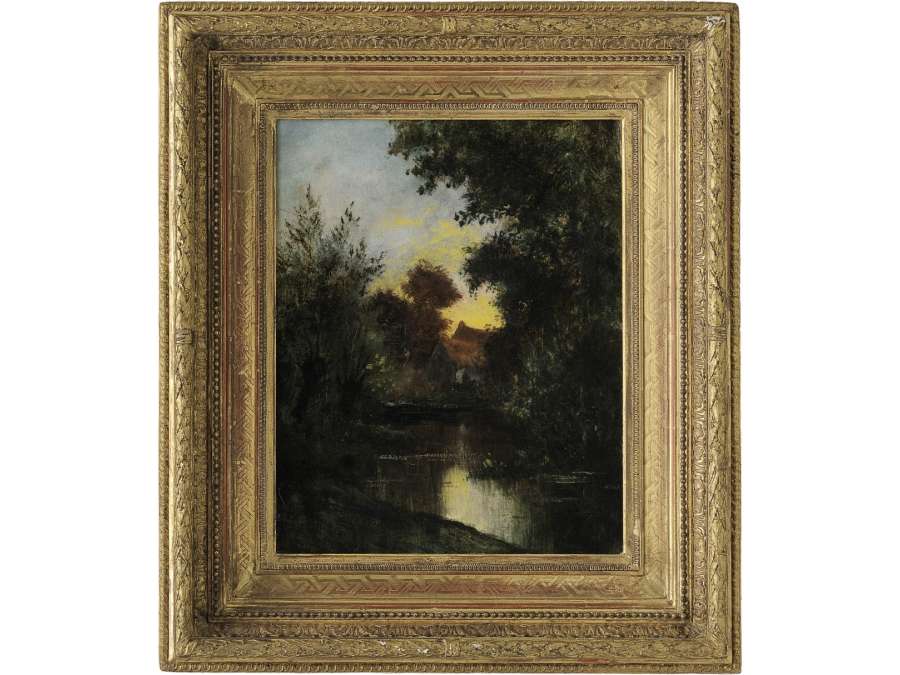Mare at dusk.
Oil on canvas monogrammed JD lower right
Dimensions: 39 x 31.5 cm, with frame: 60 x 53 cm
Born in 1811 in Nantes, Jules Dupré is regarded as one of the best landscape painters of the century (Bénézit, p. 77). His influences are multiple. He studies the Dutch masters and admires Rembrandt. During his stays in London, the painter was marked by English landscapers, in particular the master of landscape, Constable, who would profoundly influence his work.
Pleinairist attached to the Barbizon school, Jules Dupré took advantage of the invention of the paint tube in the early 1840s and the development of railway lines around Paris to put the lights of nature to the test of his brush.
Jules Dupré is the founder of the modern French landscape school, one of the five creators of the Barbizon school with Rousseau, Millet, Daubigny, Corot.
His meeting with Théodore Rousseau is decisive; he paints at his side on the motif in the forest of Fontainebleau and learns to look at nature with sincerity and depth.
He practices a landscape painting characterized by light effects and an impasto of the pictorial material. During exhibitions at the Salons, his works are noticed.
At the Salon of 1835, Eugène Delacroix congratulated him on the craftsmanship of his skies.
Camille Corot nicknamed him the “Beethoven of the landscape”.
Through Van Gogh's correspondence to his brother, we can read the painter's deep admiration for his elder.
J. Dupré, with a passionate and romantic temperament exalted by the landscape of nature, was also a precursor of Impressionism.
He experiences the outdoors; he paints the calm of nature in opposition to the bustle of the rapidly expanding industrial city.
A sensitive painter, he represents here a morning scene, far from the mythological clichés of wild nature. The dark masses of trees stop our gaze. Like a frame within a frame, the trees invite you to follow the clear river from the first light of day towards the cottage in the center of the canvas, hidden by nature. The touch is lively, it is the sign of the gesture that precedes Impressionism. Lighter, the bristles of the thickened brushes are enough to suggest the movement of the wind in the leaves.
Looking at this painting, one can understand the admiration that Van Gogh had for the artist. Perhaps he detected in his work an avant-garde form of expressionism. The treatment of nature and light, marked by an intense yellow impasto, in this strong work by Jules Dupré is a revelation.

 English
English  Français
Français











